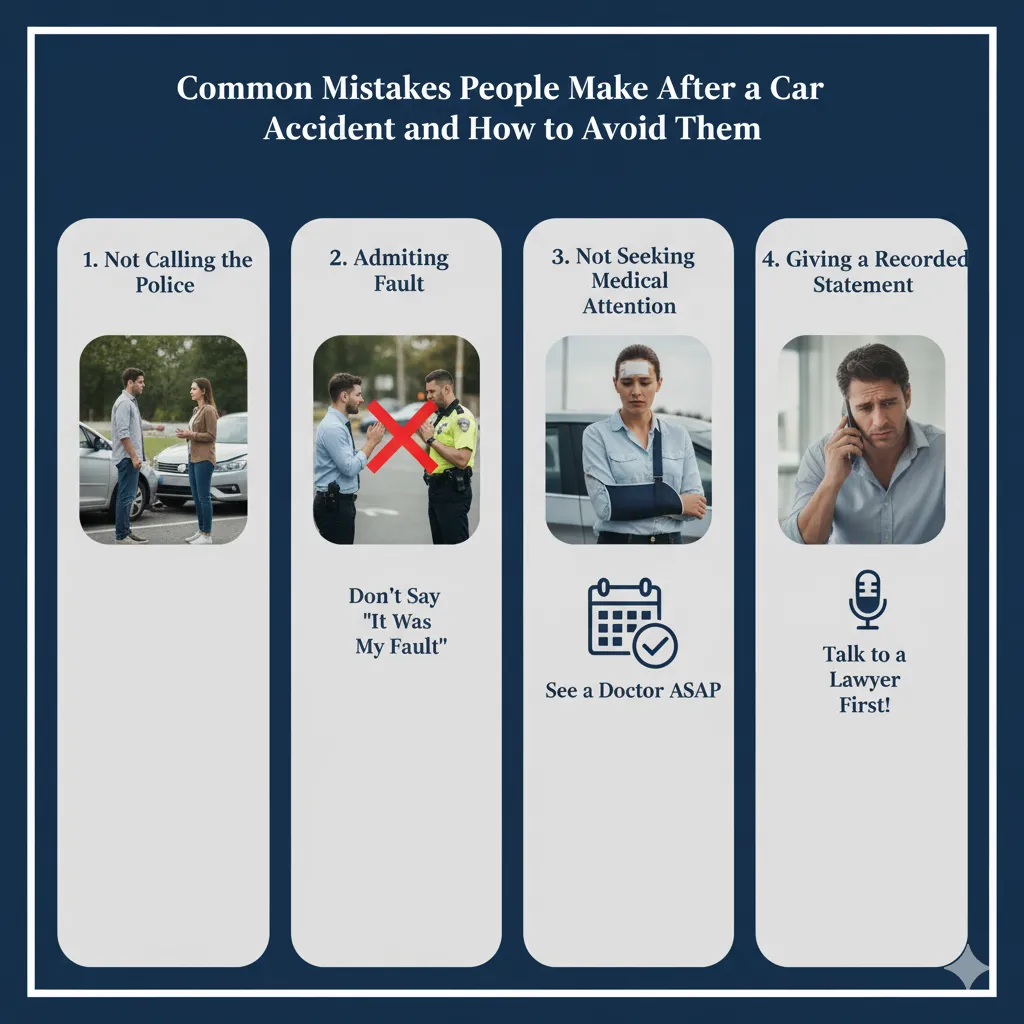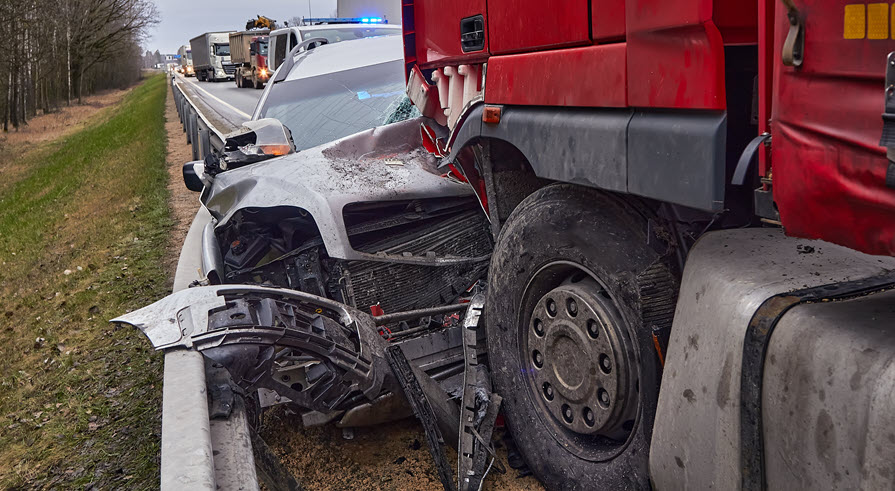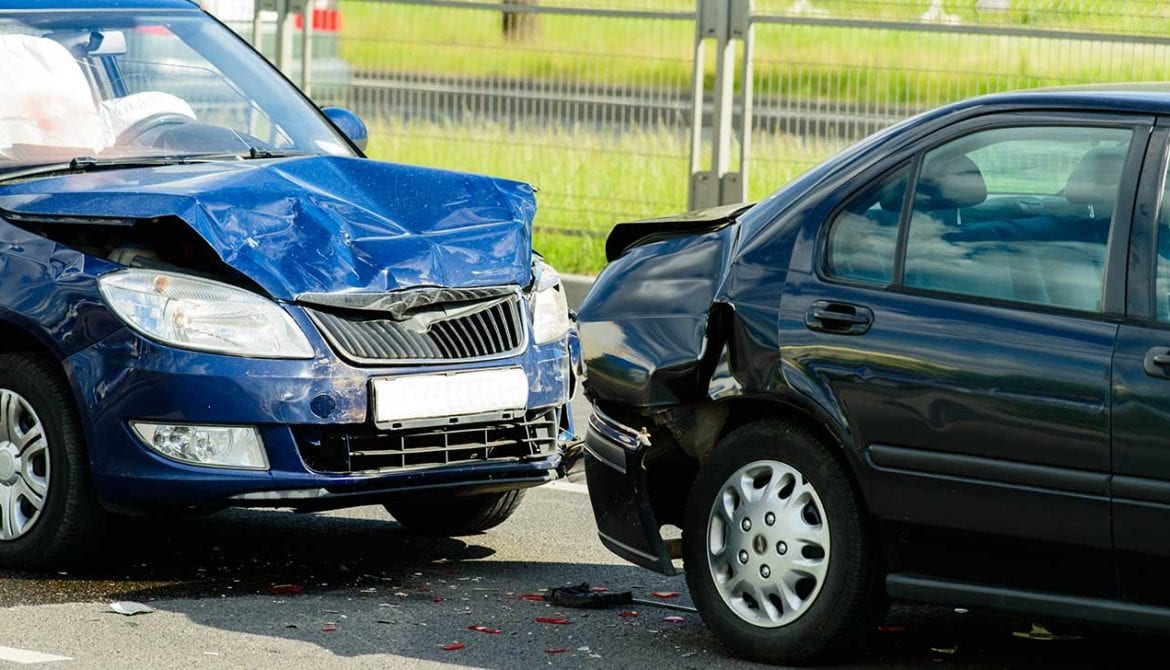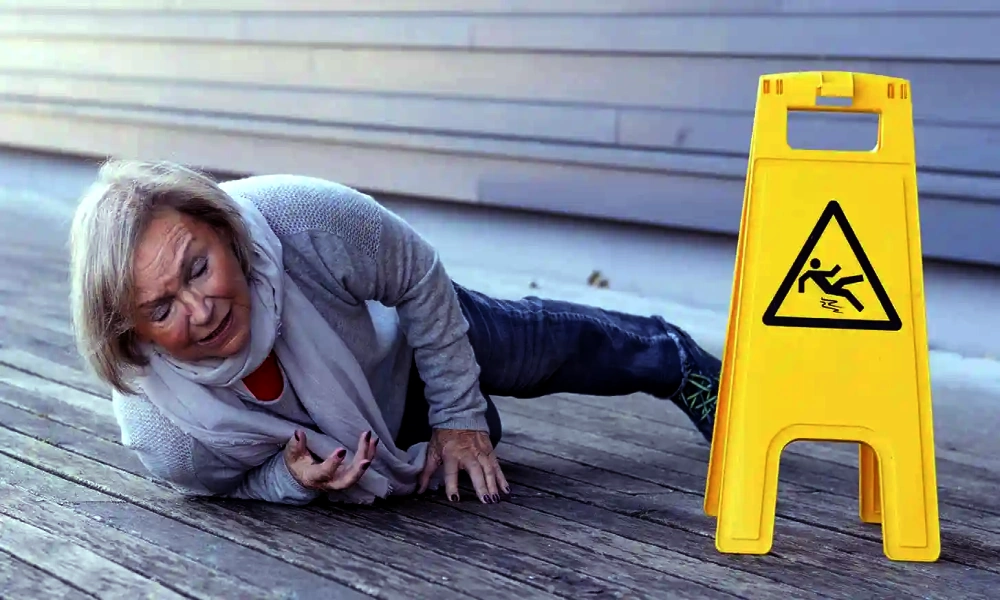10 Critical Mistakes After a Car Accident That Can Wreck Your Claim
The moments following a car accident are often filled with chaos, confusion, and adrenaline. It’s easy to make errors in judgment that can have serious consequences for your health and your ability to recover financial compensation. Insurance companies are skilled at using these common mistakes after a car accident to deny or devalue legitimate claims.
Being aware of these pitfalls is the first step toward protecting yourself. This guide outlines the most damaging mistakes people make and provides clear advice on how to avoid them, ensuring you safeguard your rights from the very beginning.
Mistake #1: Not Calling the Police or Filing a Report
No matter how minor the accident seems, always call 911. Some drivers may try to convince you to handle it “off the record” to avoid involving insurance. This is a major red flag. A police report is an official, unbiased account of the accident. It documents the date, time, location, parties involved, witness information, and often includes the officer’s initial assessment of fault. Without this crucial piece of evidence, it can become your word against the other driver’s, making it much harder to prove your case.
Mistake #2: Admitting Fault or Apologizing
It’s a natural human instinct to be polite or apologize, even when you’re not at fault. However, saying “I’m so sorry” at the scene can be interpreted as an admission of guilt by an insurance company. Stick strictly to the facts when speaking to the other driver and the police. Do not speculate on what happened or accept any blame. Let the investigation determine fault.
Mistake #3: Delaying or Refusing Medical Treatment
This is one of the most serious mistakes after a car accident. If you are injured, seek medical attention immediately. Even if you feel okay, some injuries (like whiplash or concussions) may not present symptoms for hours or days. Delaying treatment gives the insurance company an opening to argue that your injuries weren’t caused by the accident or aren’t as severe as you claim. This “gap in treatment” is a common reason for claim denial.
Mistake #4: Giving a Recorded Statement to the Other Insurer
The other driver’s insurance adjuster will likely call you within days of the accident and ask for a recorded statement. They are not calling to help you. They are trained to ask leading questions designed to get you to say something that undermines your claim. You are under no legal obligation to provide them with a statement. Politely decline and direct them to your attorney.
Mistake #5: Signing Documents Without Legal Review
Never sign any documents from an insurance company, especially a medical authorization form or a settlement release, without having an attorney review them first. You could be unknowingly granting the insurer access to your entire medical history or signing away your right to future compensation for a fraction of what your claim is worth.
Mistake #6: Posting About the Accident on Social Media
In today’s digital world, anything you post online can be used against you. Insurance companies actively search claimants’ social media profiles. A picture of you at a family barbecue or a post saying you’re “doing fine” can be used to argue that your injuries are exaggerated. It’s best to refrain from posting anything about the accident, your injuries, or your daily activities until your case is resolved.
Mistake #7: Accepting the First Settlement Offer
Insurance companies are for-profit businesses. Their initial settlement offer is almost always a lowball amount intended to make the claim go away quickly and cheaply. They are betting that you are desperate for cash and unaware of the true value of your claim. This is a critical mistake after a car accident because accepting it means you can never ask for more money, even if your injuries worsen.
Mistake #8: Not Gathering Your Own Evidence
While the police will create a report, you should gather your own evidence if you are physically able. Use your phone to take pictures of both vehicles, the accident scene, traffic signs, skid marks, and your injuries. Get the names and phone numbers of any witnesses. This evidence can be invaluable later on.
Mistake #9: Missing Doctor’s Appointments
Once you start a treatment plan, follow it to the letter. Don’t miss physical therapy sessions or follow-up appointments. The insurance company will monitor your treatment, and any missed appointments can be used as evidence that you are not as injured as you claim or are not committed to your recovery.
Mistake #10: Not Hiring a Personal Injury Attorney
Trying to handle a car accident claim on your own puts you at a significant disadvantage. An experienced attorney understands the law, knows how to value a claim, and can counter the tactics used by insurance companies. Studies consistently show that claimants who hire a lawyer receive significantly higher settlements than those who do not.
Legal Support for Accident Victims Nationwide
If you’ve been in an accident, getting expert legal advice is key. Here are some highly-regarded firms across the country that can help:
- Nevada: Adam S. Kutner, Injury Attorneys (Las Vegas)
- Michigan: Michigan Auto Law (Farmington Hills)
- North Carolina: The Law Offices of James Scott Farrin (Durham)
- Illinois: Clifford Law Offices (Chicago)
- Tennessee: The Law Office of George R. Fusner, Jr. (Nashville)
Conclusion: Proactive Steps for a Stronger Claim
The aftermath of a car crash is a critical time. Avoiding these common mistakes after a car accident is paramount to protecting your physical and financial future. By being cautious, documenting everything, prioritizing your health, and seeking professional legal counsel, you can navigate the claims process effectively and secure the fair compensation you rightfully deserve.
Sources:
- Forbes Advisor. (2025). 10 Things Not To Do After A Car Accident.
- FindLaw. (2025). What Not to Do After a Car Accident.
- American Bar Association. (2025). Checklist: What to Do After a Car Accident.




